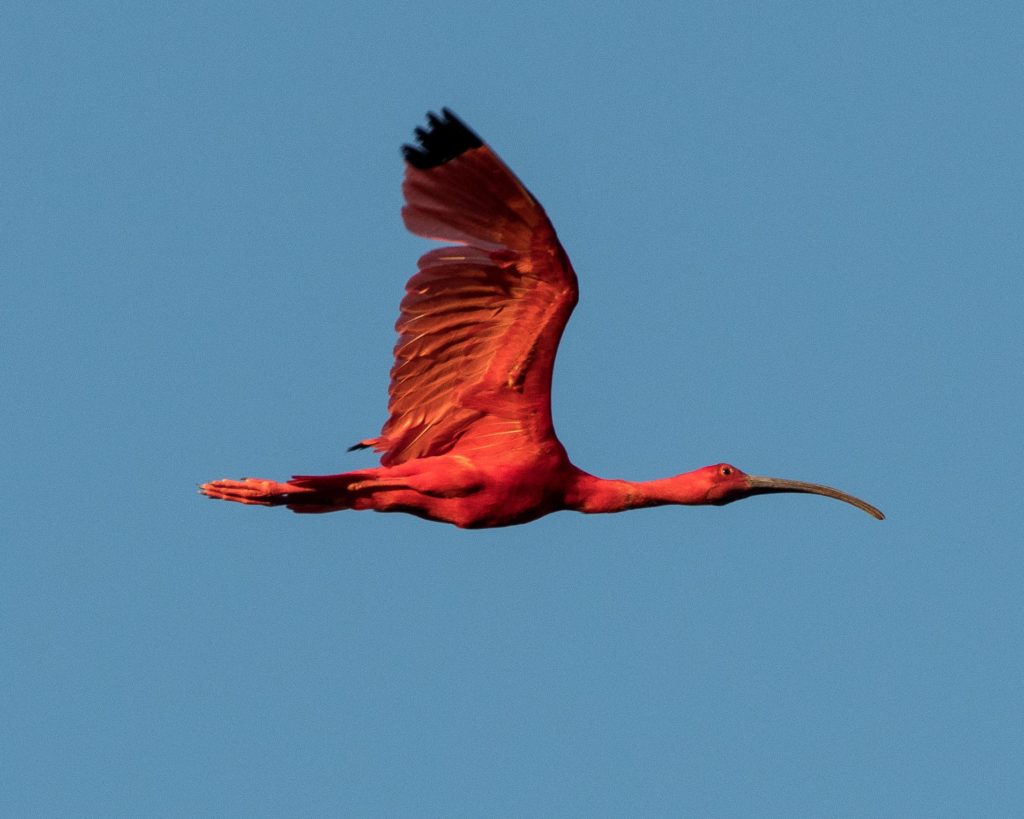The Collaboration with Naturalist Journeys Was a Win-Win-Win!
Our Trinidad and Tobago birding guides found 237 species of birds in the off season during a win-win-win eBird checklist collaboration with Naturalist Journeys that benefits birders everywhere. They submitted 20 eBird checklists representing two dozen birding hotspots throughout the islands.
“We should all be encouraged by this outcome and for the impressive numbers of birds which we now know can be seen during what we generally consider our off season; including dozens of rarities and even a few lifers,” wrote Jason Radix, our longtime lead guide for Tobago, who coordinated the e-Bird checklist project. “This update can now be used as a reference list for future bird watching tours.”
To see what they saw on these unique and gorgeous islands, join one of Naturalist Journeys’ guided group tours to Trinidad and Tobago.
Helping our guides cope with a loss of tourism income was the primary motivation for Naturalist Journeys owner and founder Peg Abbott to create the eBird checklist incentive program. In a COVID-induced lull in ecotourism she paid the guides a modest monthly stipend to keep getting out in the field and to keep their birding skills sharp, while contributing to important citizen science.
It is a bonus that their eBird checklists will be a great encouragement to birders who have begun to return to the just-opened country, as they demonstrate that a great variety of birds continue to proliferate in Trinidad and Tobago, even in what’s considered off-season. The COVID-19 pandemic saw the country shut to tourism for a long 16 months, during which, UNESCO named Northeast Tobago a Man and the Biosphere Reserve, underscoring just how precious it is to biodiversity.
In all, our guides visited more than two-dozen birding hotspots and submitted 20 eBird checklists.
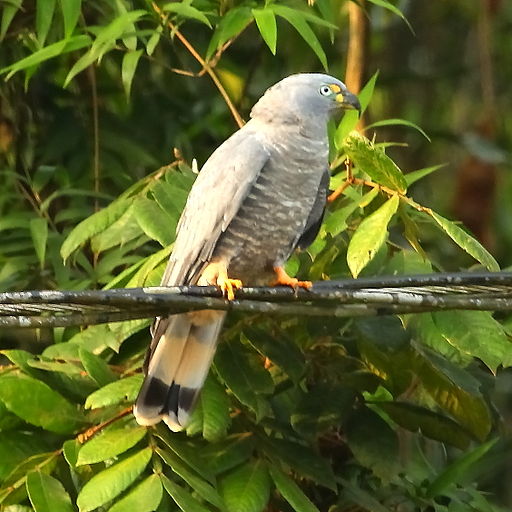
Hook-billed Kite. Photo Credit: Wikimedia Commons 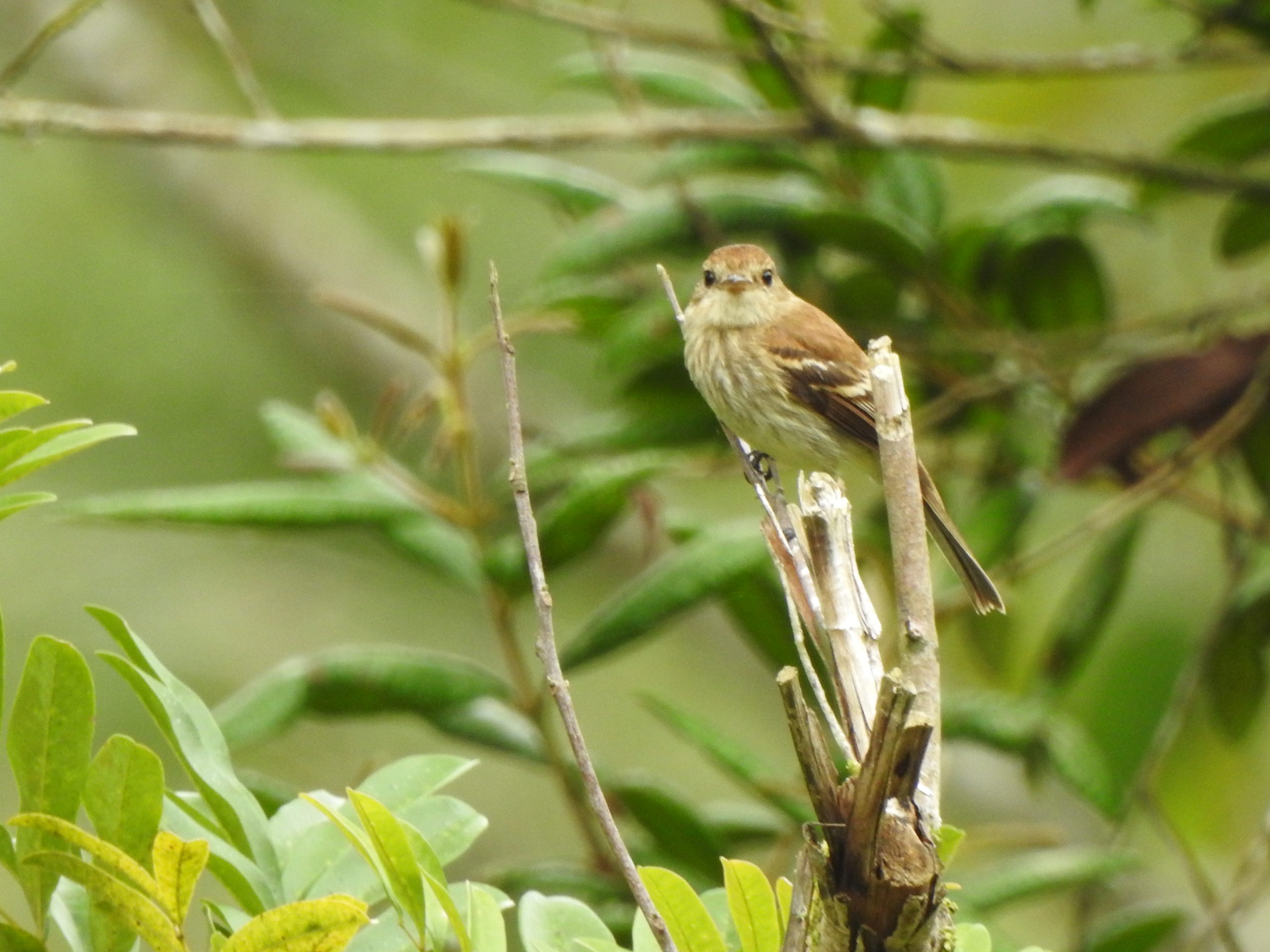
Bran-coloured Flycatcher. Photo Credit: Wikimedia Commons
Surprising them both, our longtime Trinidad and Tobago birding guides actually recorded life birds during the project: Our Tobago expert Jason Radix saw his first Bran-colored Flycatcher, after many years of birding the islands, and Lester Nanan, a third-generation ecotourism pioneer in Trinidad, saw his first Hook-billed Kite.
Their eBird checklists are especially important in the absence of reports from visiting birdwatchers. This bird data drought was observed all over the world, as described recently in the journal Biological Conservation, not only with birds but for all user-dependent collaborative nature data collection.
“The outbreak of COVID-19 followed by stay-at-home orders have definitely affected the quantity and quality of data collected by participants,” according to lead author Wesley Hochachka, a researcher at the Cornell Lab quoted in an article about the study on eBird’s website.
Studying eBird checklist data from New York, Spain, Portugal and California, “(o)ne of the biggest changes they noted was in the type of habitat the reports were coming from,” eBird wrote in its piece, Pandemic-related Changes in Birding may have Consequences for eBird Research. “With more people at home, more people reported birds around urban areas…Less common habitats, such as wetlands, may then be under-sampled because restrictions on human travel make it less likely that birdwatchers will go there.”
Our guides not only traveled to wetlands but to all the varied habitats our guests get to experience on our tours in Trinidad and Tobago. Below, enjoy descriptions of those habitats and see galleries representing the many wonderful birds that can be seen even in the “off season” with Trinidad and Tobago birding.
Caroni Swamp
In Caroni National Park, we moor up at a quiet spot in the mangroves to let the sunset show begin. Hundreds, and sometimes thousands, of Scarlet Ibis cloud the sky as they fly in to roost, an experience you won’t soon forget.
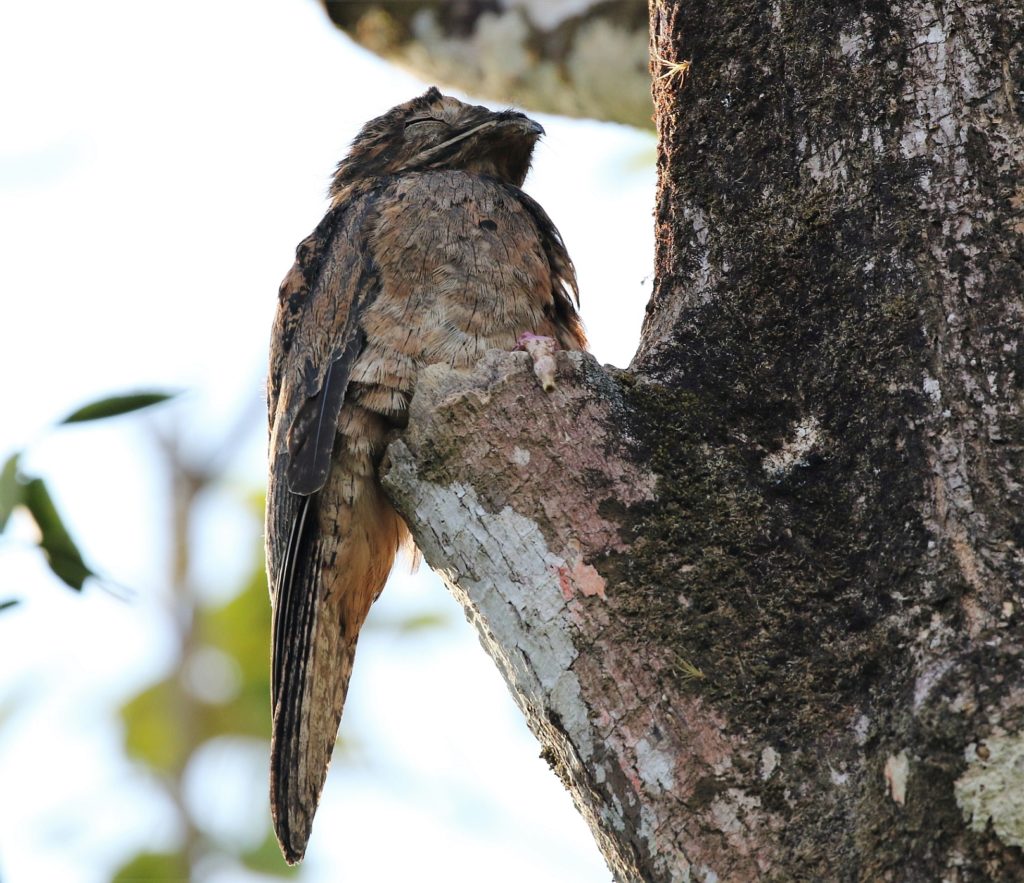
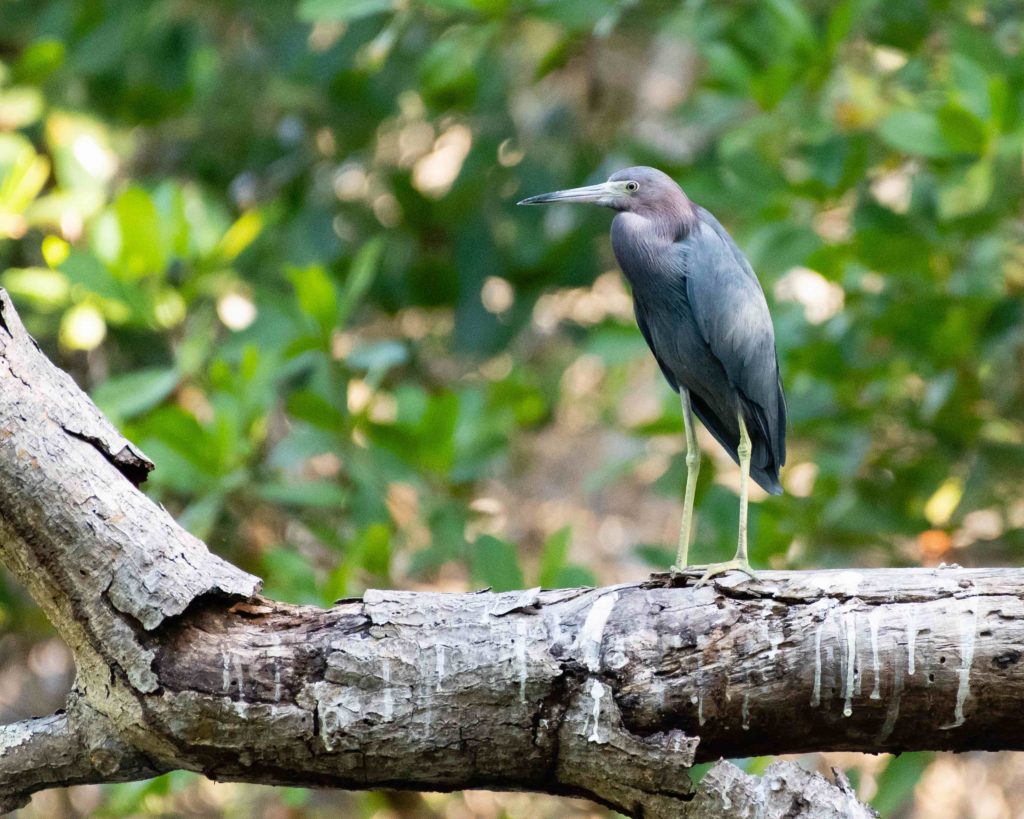
Little Blue Heron. Photo Credit: Hugh Simmons Photography
Waterloo
The best area for finding shorebirds in Trinidad is the extensive area of tidal mudflats along the west coast—an area locally known as “Waterloo”. We plan our departure time with tides in mind. Of significant interest are birds arriving from mainland South America.
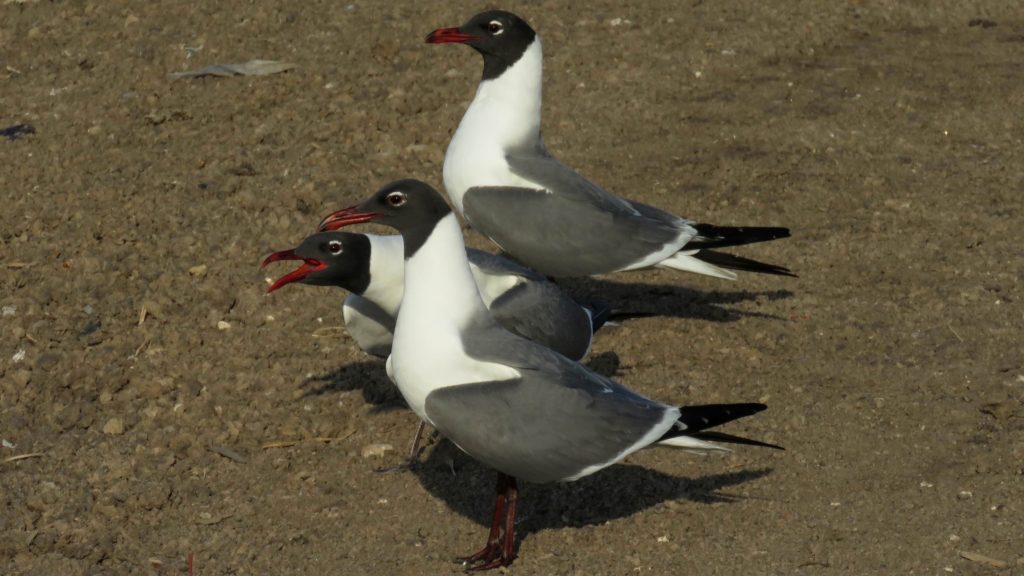
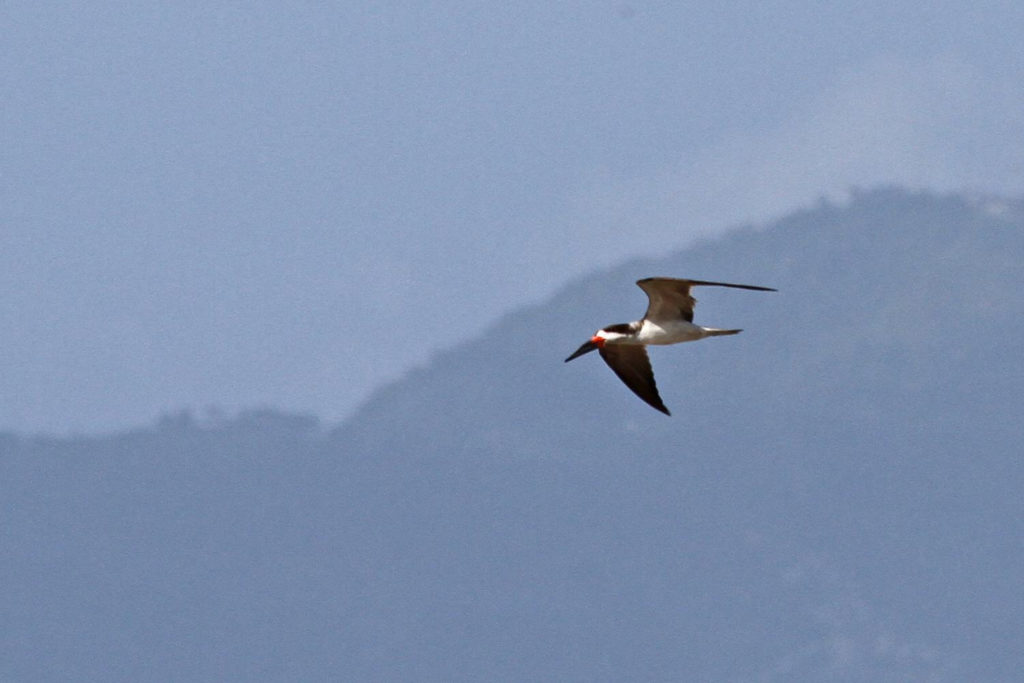
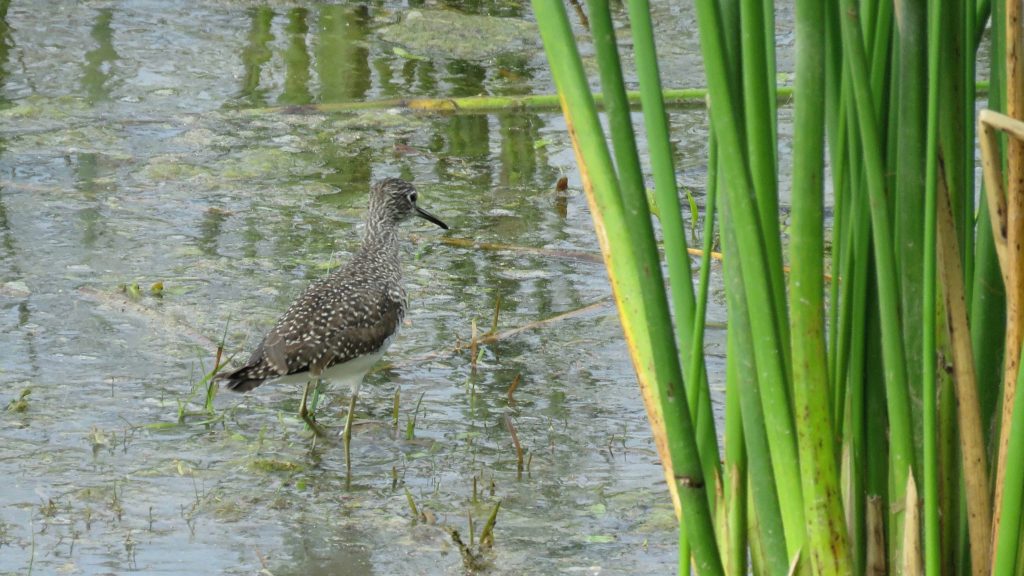

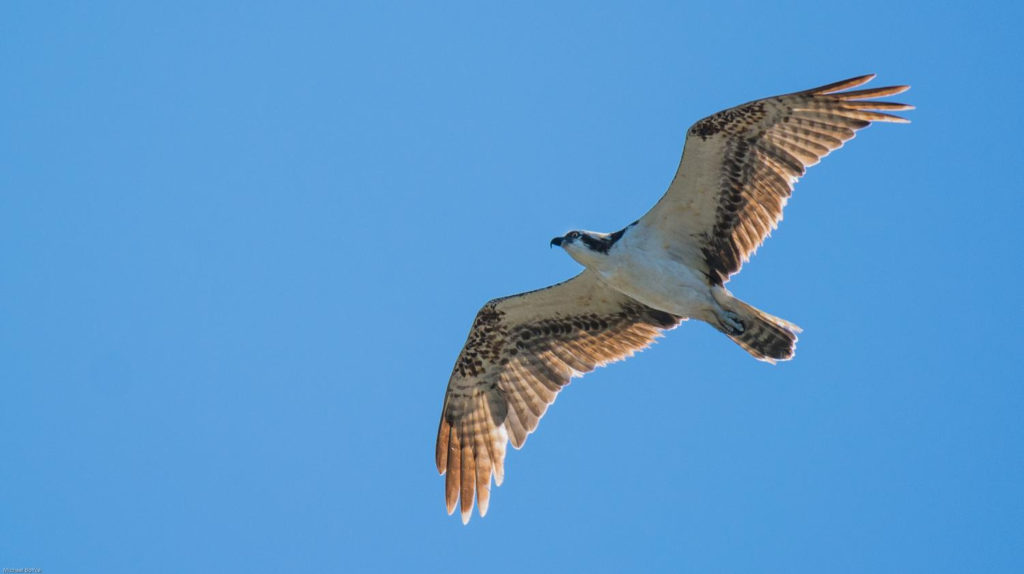
Nariva Swamp
We bird the swamp formed where the Nariva River reaches the sea; freshwater environments of herbaceous swamp and mangrove swamp forest make for spectacular birding. This is a very full day with many stops and the discovery of species found nowhere else on the island.
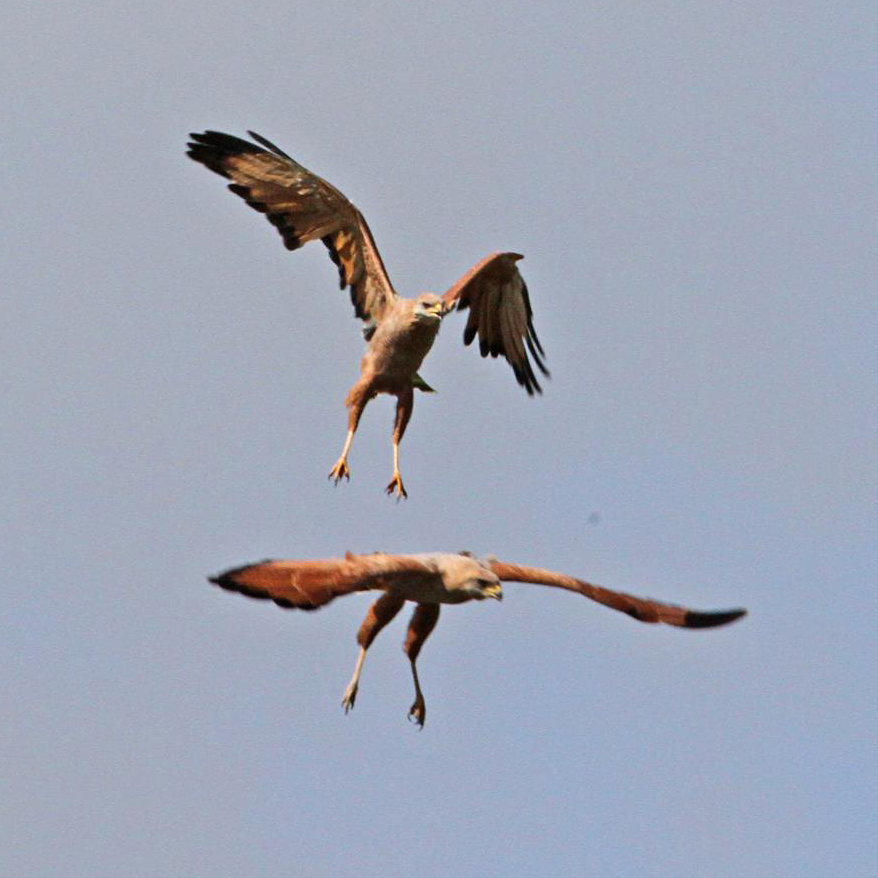



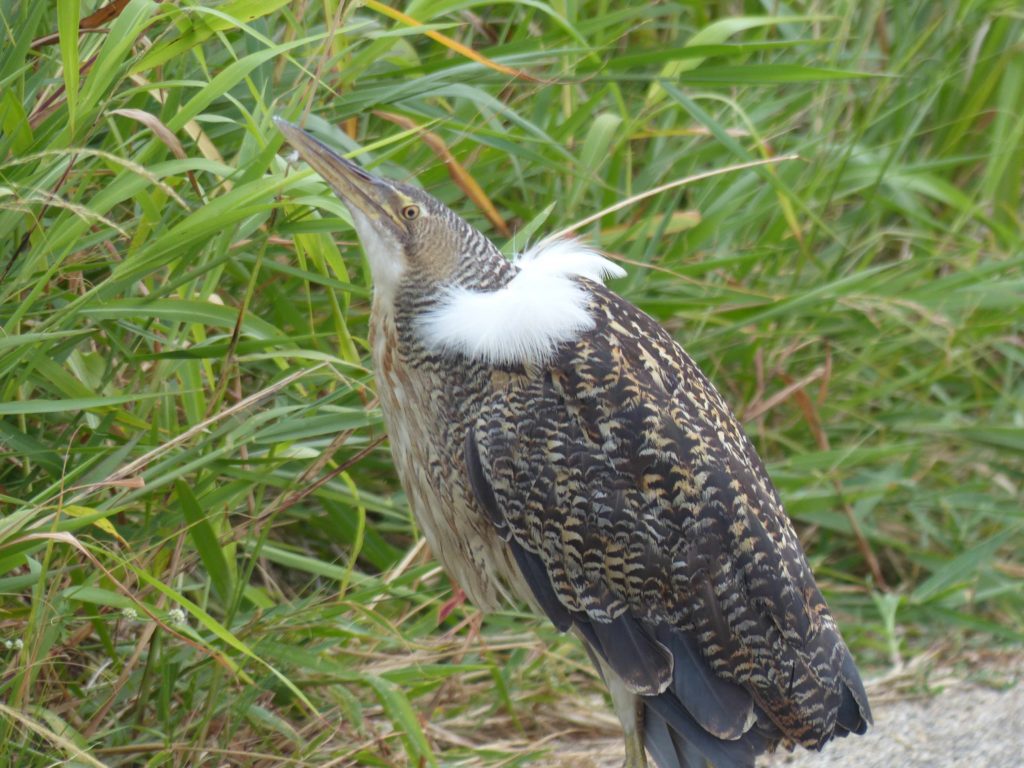
Yerette
We visit the hummingbird retreat called Yerettê, “Home of the Hummingbird.” Located in the Maracas Valley, this private home and lush garden attracts up to fourteen of the eighteen species of hummingbirds found in Trinidad and Tobago.
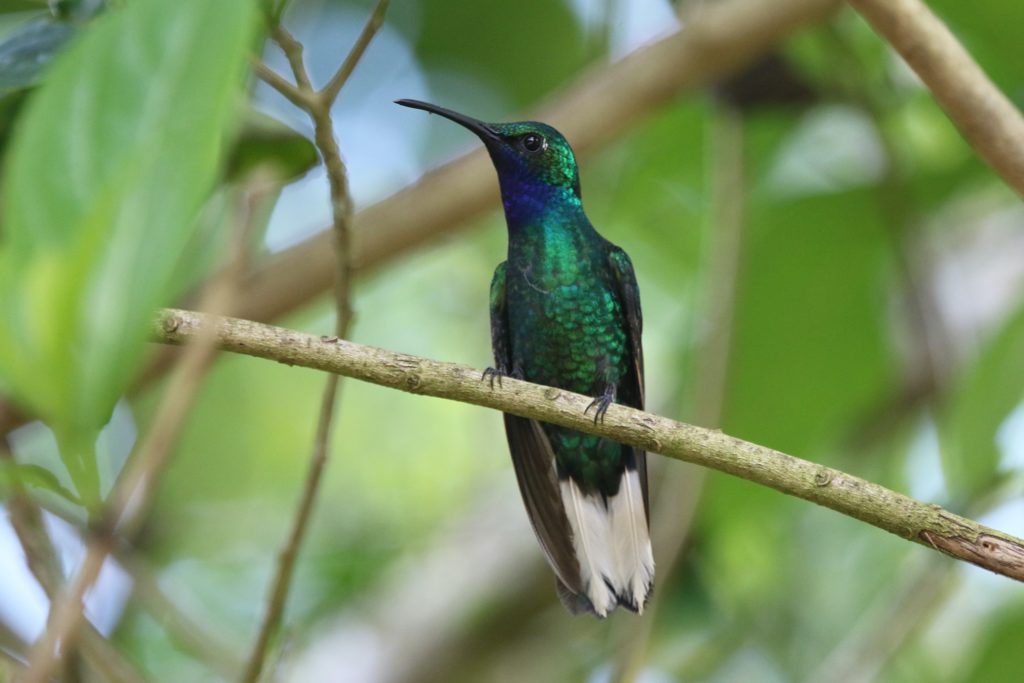
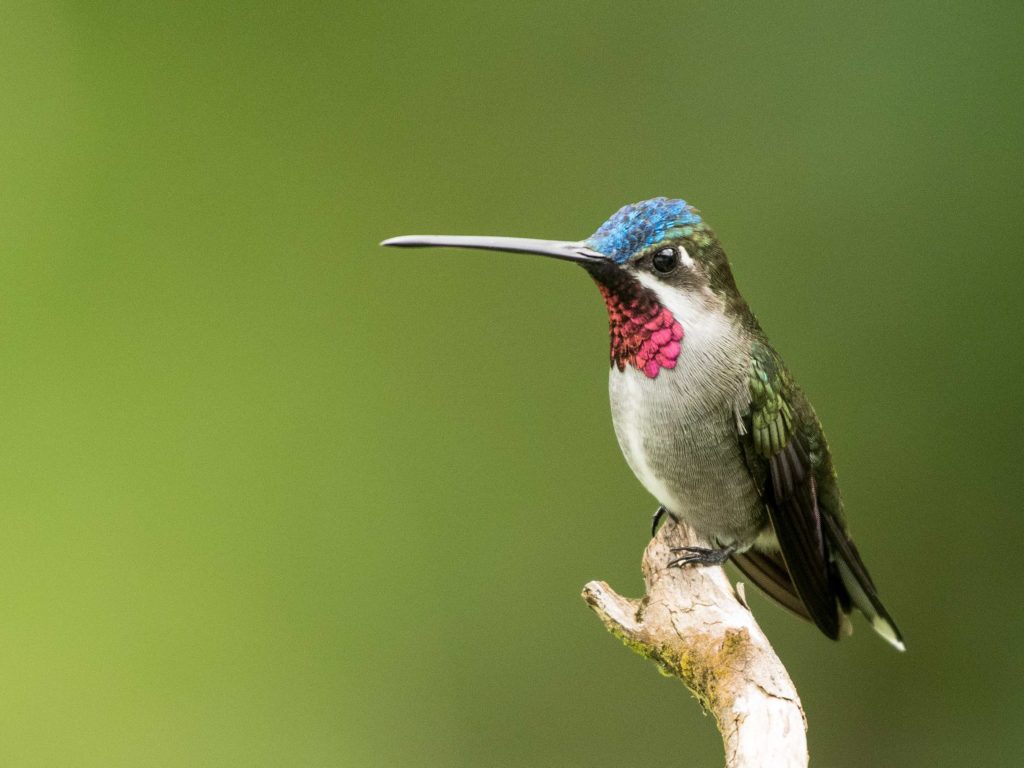


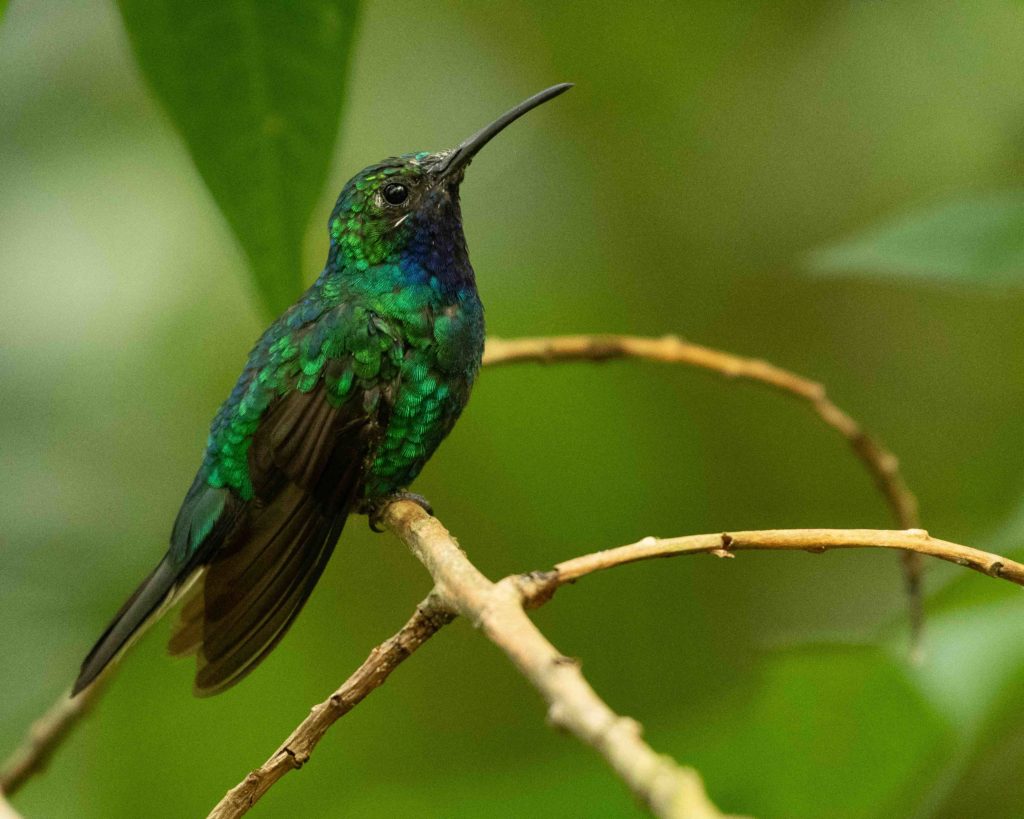
Aripo/Arena Forest
A remnant of a once major lowland habitat, the seasonally-wet Aripo Savannah is surrounded by sugar cane fields. We explore the tropical birds unique to this habitat, as well as the distinctive flora that has adapted to the savannah’s harsh conditions—alternating from wet to dry.
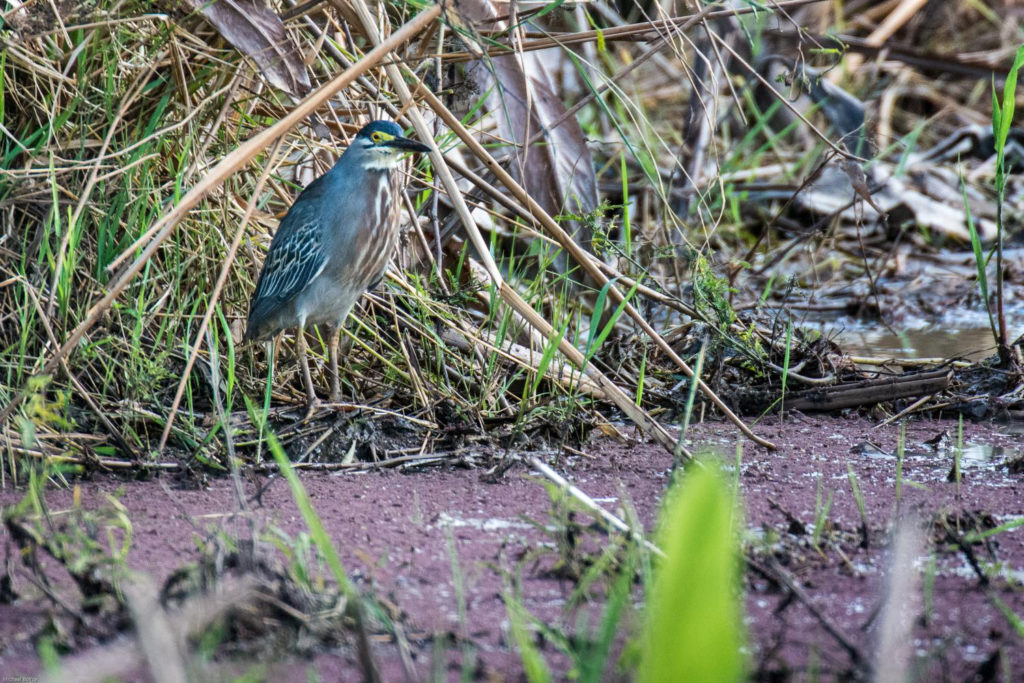
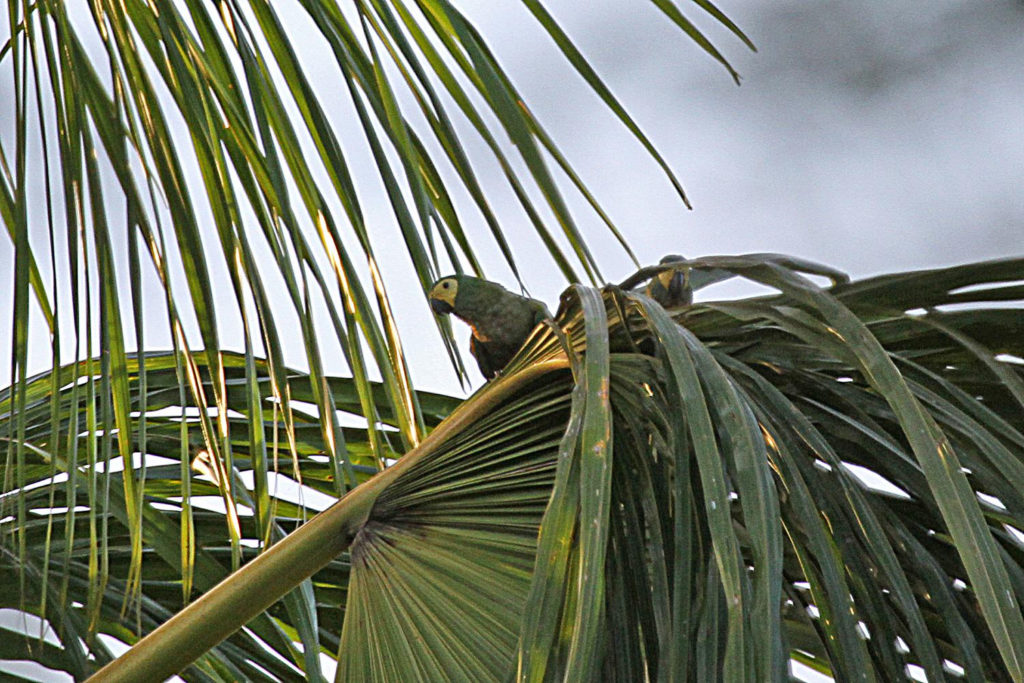
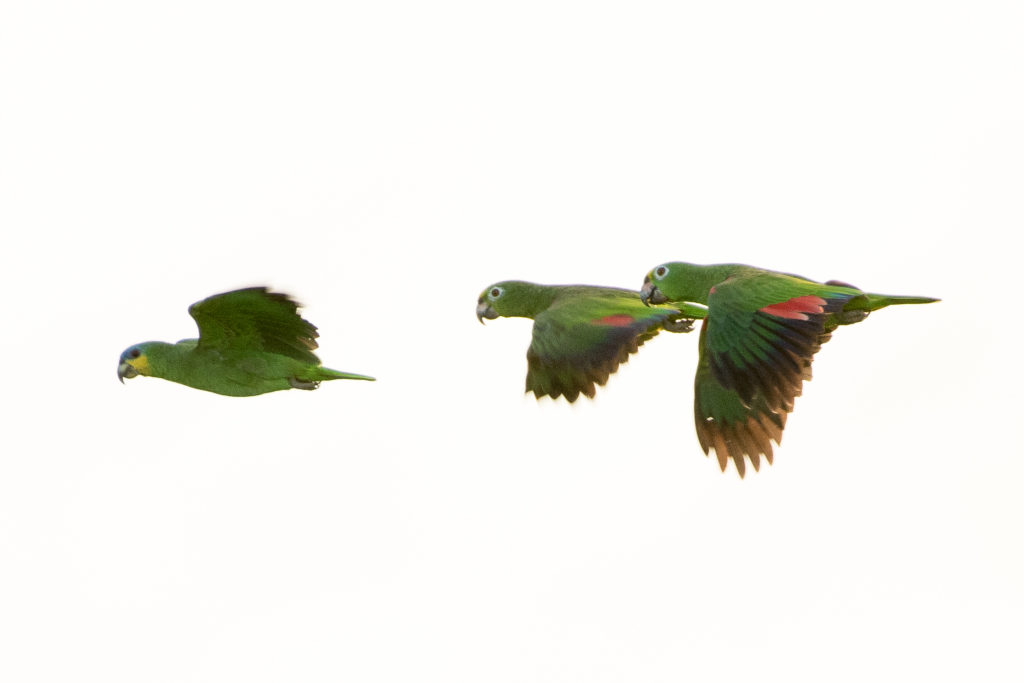
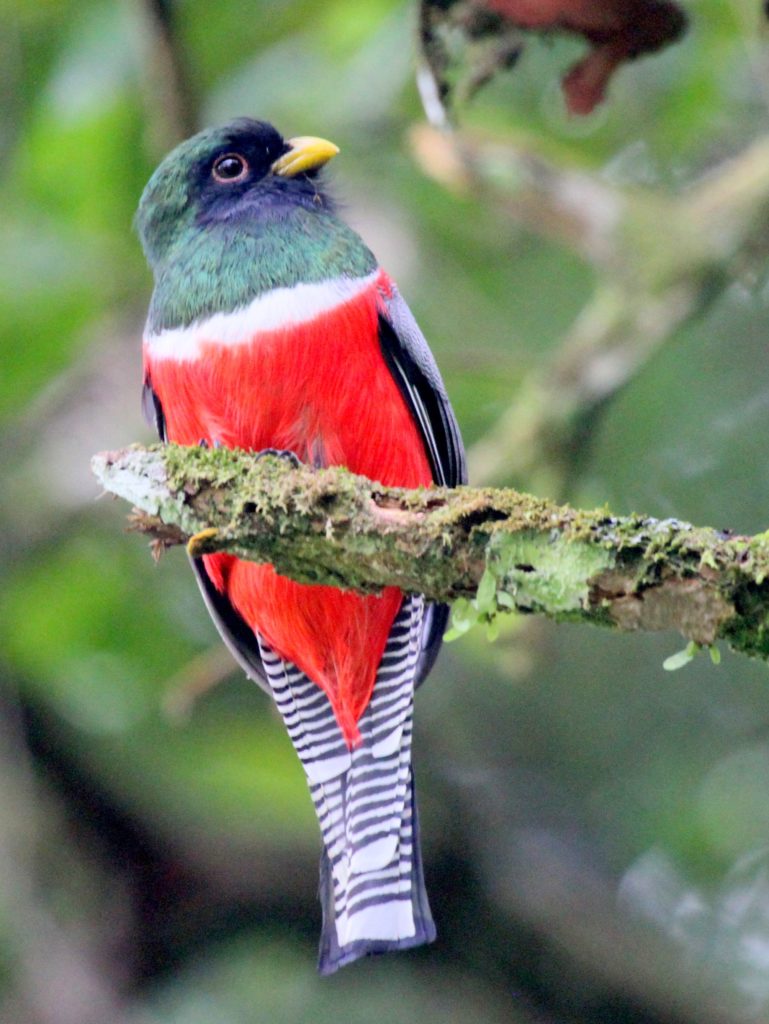
Main Ridge Forest Reserve
We visit the Main Ridge Forest Reserve, tracing the spine of Tobago. Founded in 1776 and considered the first forest reserve created for a conservation purpose, it’s a great place to find furtive species.
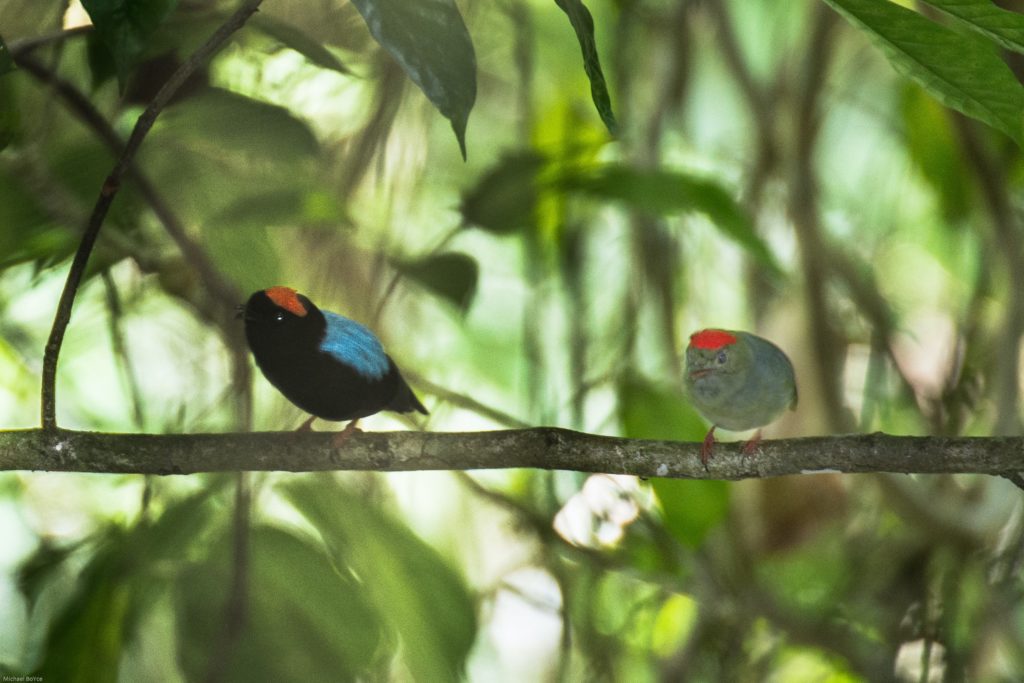
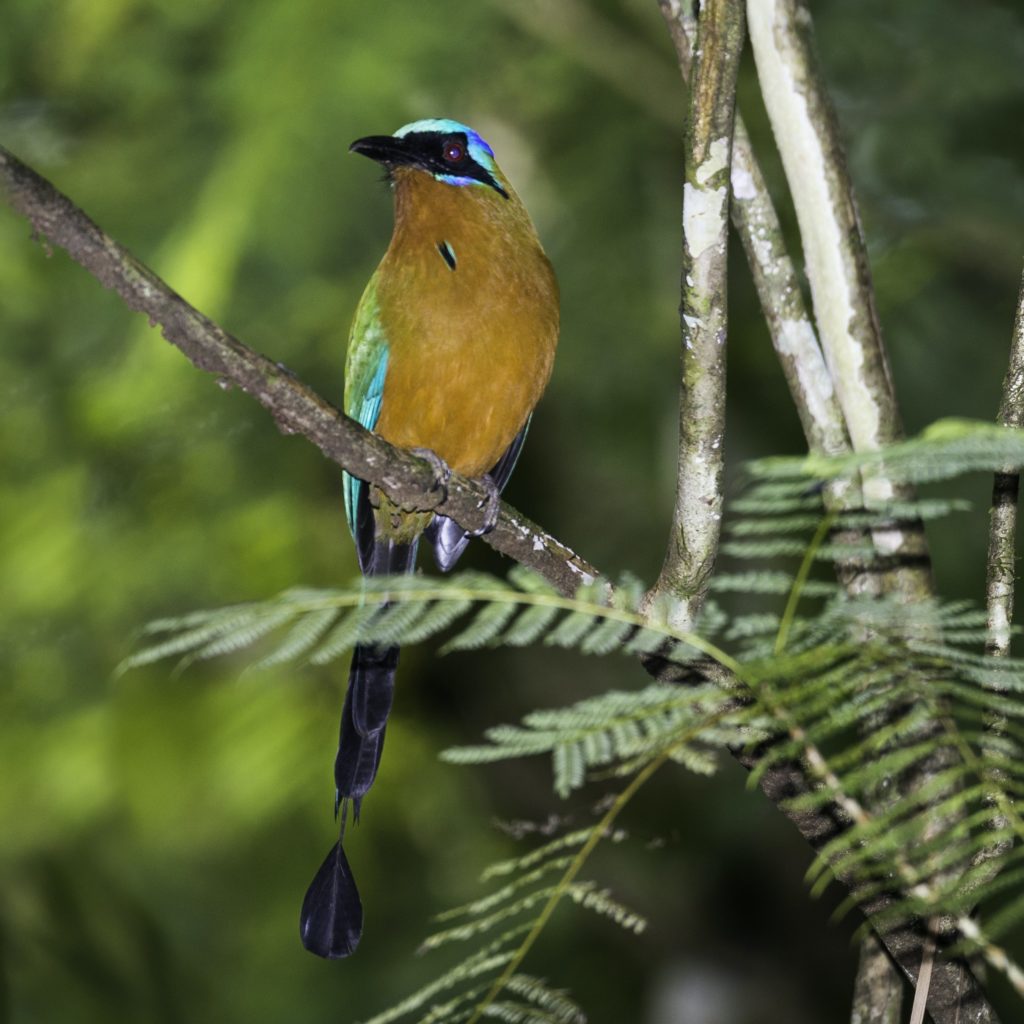
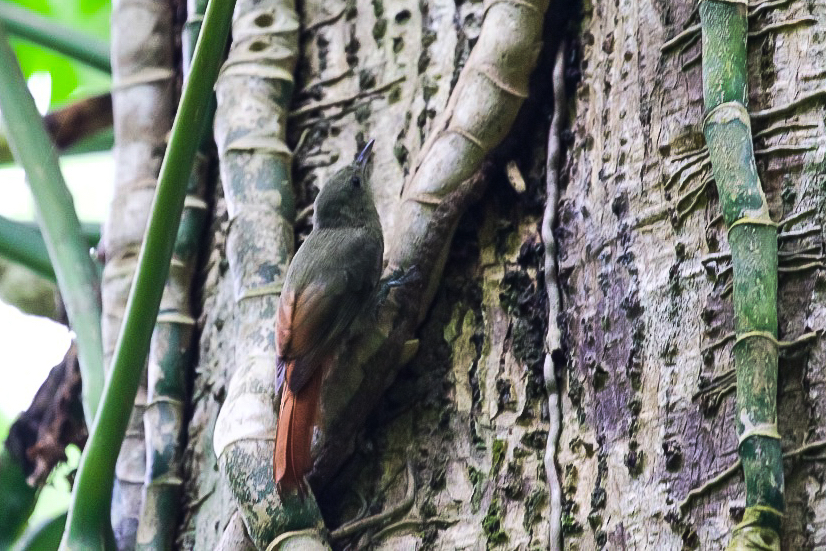

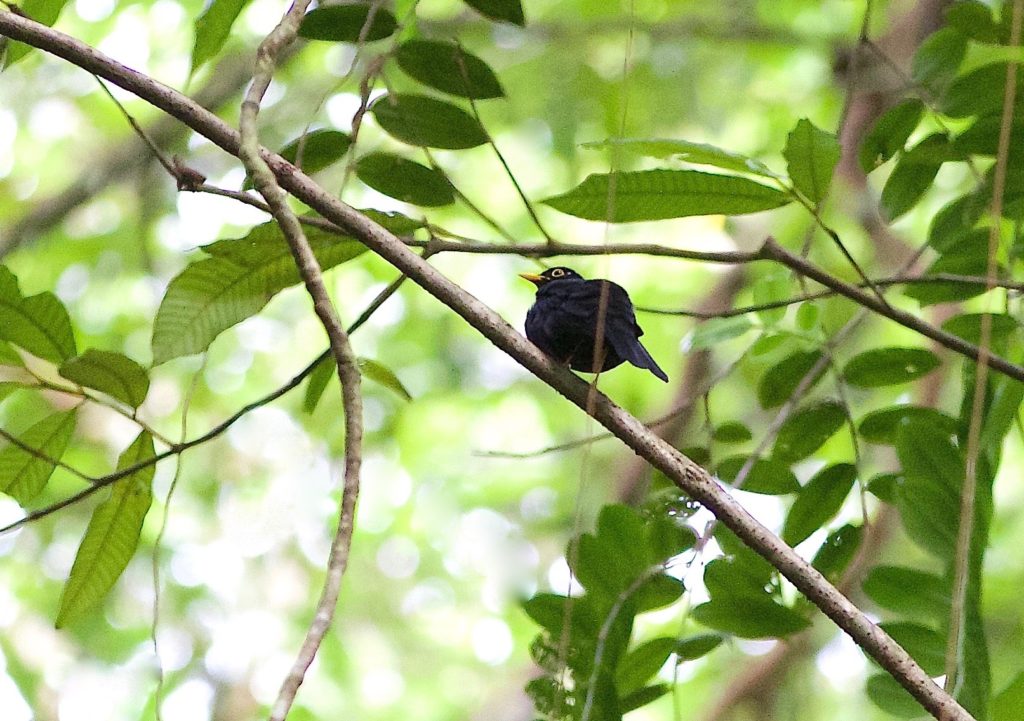
Full List of Birds:
| Little Tinamou |
| Common Ground Dove |
| Ruddy Ground Dove |
| White-tipped Dove |
| Eared Dove |
| Pale-vented Pigeon |
| Gray-fronted Dove |
| Scaled Pigeon |
| Rock Pigeon (Feral Pigeon) |
| Scaly-naped Pigeon |
| Ringed Kingfisher |
| American Pygmy Kingfisher |
| Belted Kingfisher |
| Green Kingfisher |
| Great Egret |
| Snowy Egret |
| Cattle Egret |
| Great Blue Heron |
| Little Blue Heron |
| Green Heron |
| Striated Heron |
| Tricolored Heron |
| Yellow-crowned Night-Heron |
| Black-crowned Night-Heron |
| White-bearded Manakin |
| Golden-headed Manakin |
| Blue-backed Manakin |
| Striped Cuckoo |
| Squirrel Cuckoo |
| Smooth-billed Ani |
| Greater Ani |
| Osprey |
| Black Vulture |
| Turkey Vulture |
| White Hawk |
| Common Black Hawk |
| Zone-tailed Hawk |
| Savanna Hawk |
| Gray-lined Hawk |
| Short-tailed Hawk |
| Great Black Hawk |
| Broad-winged Hawk |
| Yellow-headed Caracara |
| Plumbeous Kite |
| Long-winged Harrier |
| Apolmado Falcon |
| Pearl Kite |
| Crane Hawk |
| Hook-billed Kite |
| Black-hawk Eagle |
| Tropical Pewee |
| Great Kiskadee |
| Boat-billed Flycatcher |
| Olive-striped Flycatcher |
| Tropical Kingbird |
| Gray Kingbird |
| Fork-tailed Flycatcher |
| Southern Beardless-Tyrannulet |
| Yellow-breasted Flycatcher |
| Yellow-bellied Elaenia |
| Brown-crested Flycatcher |
| Forest Elaenia |
| Bran-coloured Flycatcher |
| Slaty-capped Flycatcher |
| Spotted Tody-Flycatcher |
| Yellow-olive Flycatcher |
| Euler’s Flycatcher |
| White-throated Spadebill |
| Streaked Flycatcher |
| Ochre-bellied Flycatcher |
| Fuscous Flycatcher |
| Sulphury Flycatcher |
| Bran-colored Flycatcher |
| Rufous-tailed Jacamar |
| Trinidad Motmot |
| Wilson’s Snipe |
| Western Sandpiper |
| Pectoral Sandpiper |
| Solitary Sandpiper |
| Least Sandpiper |
| Lesser Yellowlegs |
| Greater Yellowlegs |
| Wattled Jacana |
| Southern Lapwing |
| Ruddy Turnstone |
| Willet |
| Whimbrel |
| Stilt Sandpiper |
| Semipalmated Plover |
| American Golden-Plover |
| Semipalmated Sandpiper |
| Spotted Sandpiper |
| Sanderling |
| Black-necked Stilt |
| Masked Cardinal |
| American Flamingo |
| Scarlet Ibis |
| Hudsonian Godwit |
| Rufous-vented Chachalaca |
| White-headed Marsh Tyrant |
| Pied Water-Tyrant |
| Green-backed Trogon |
| Guianan Trogon |
| Collared Trogon |
| Magnificent Frigatebird |
| Brown Pelican |
| Red-billed Tropicbird |
| Laughing Gull |
| Lesser Black-backed Gull |
| Large-billed Tern |
| Roseate Tern |
| Royal Tern |
| Sandwich Tern |
| Bridled Tern |
| Yellow-billed Tern |
| Common Tern |
| Gull-billed Tern |
| Brown Noddy |
| Brown Booby |
| Red-footed Booby |
| Audubon’s Shearwater |
| Black Skimmer |
| Bicolored Conebill |
| Bananaquit |
| Blue Dacnis |
| Turquoise Tanager |
| Bay-headed Tanager |
| Swallow Tanager |
| Speckled Tanager |
| Blue-gray Tanager |
| Palm Tanager |
| Hepatic Tanager |
| White-lined Tanager |
| Silver-beaked Tanager |
| Red-crowned Ant-Tanager |
| White-shouldered Tanager |
| Trinidad Euphonia |
| Violaceous Euphonia |
| Purple Honeycreeper |
| Green Honeycreeper |
| Red-legged Honeycreeper |
| Grassland Yellow-Finch |
| Saffron Finch |
| Blue-black Grassquit |
| Blue-faced Grassquit |
| Sooty Grassquit |
| Ruddy-breasted Seedeater |
| Tricolored Munia |
| Common Waxbill |
| Golden-olive Woodpecker |
| Red-rumped Woodpecker |
| Lineated Woodpecker |
| Red-crowned Woodpecker |
| Lilac-tailed Parrotlet |
| Green-rumped Parrotlet |
| Orange-winged Parrot |
| Blue-headed Parrot |
| Red-bellied Macaw |
| Bearded Bellbird |
| Black-bellied Whistling-Duck |
| White-cheeked Pintail |
| Tropical Mockingbird |
| White-necked Jacobin |
| Rufous-breasted Hermit |
| Green Hermit |
| Little Hermit |
| Copper-rumped Hummingbird |
| White-chested Emerald |
| Ruby-topaz Hummingbird |
| Black-throated Mango |
| Blue-chinned Sapphire |
| Green-throated Mango |
| White-tailed Goldenthroat |
| Gray-breasted Martin |
| Caribbean Martin |
| Southern Rough-winged Swallow |
| White-winged Swallow |
| Barn Swallow |
| Bank Swallow |
| Cliff Swallow |
| Fork-tailed Palm-Swift |
| Band-rumped Swift |
| Gray-rumped Swift |
| Short-tailed Swift |
| Masked Yellowthroat |
| Rufous-browed Peppershrike |
| Golden-fronted Greenlet |
| Scrub Greenlet |
| Chivi Vireo |
| Tropical Parula |
| Golden-crowned Warbler |
| American Redstart |
| Yellow Warbler |
| Long-billed Gnatwren |
| House Wren |
| Rufous-breasted Wren |
| Grayish Saltator |
| Olivaceous/Blue-gray Saltator |
| Plain Antvireo |
| White-bellied Antbird |
| Black-faced Antthrush |
| Black-crested Antshrike |
| Barred Antshrike |
| White-fringed Antwren |
| Plain-brown Woodcreeper |
| Cocoa Woodcreeper |
| Olivaceous Woodcreeper |
| Streak-headed Woodcreeper |
| Channel-billed Toucan |
| Least Grebe |
| Anhinga |
| Limpkin |
| Pinnated Bittern |
| Least Bittern |
| Blue-and-yellow Macaw |
| Tropical Mockingbird |
| Cocoa Thrush |
| White-necked Thrush |
| Spectacled Thrush |
| Northern Waterthrush |
| Yellow-chinned Spinetail |
| Pale-breasted Spinetail |
| Striped-breasted Spinetail |
| Streaked Xenops |
| Ferruginous Pygmy-Owl |
| Barn Owl |
| Sora |
| Grey-necked Wood Rail |
| Yellow-breasted Crake |
| Red-breasted Meadowlark |
| Yellow-rumped Cacique |
| Yellow Oriole |
| Giant Cowbird |
| Carib Grackle |
| Yellow-hooded Blackbird |
| Shiny Cowbird |
| Crested Oropendola |


